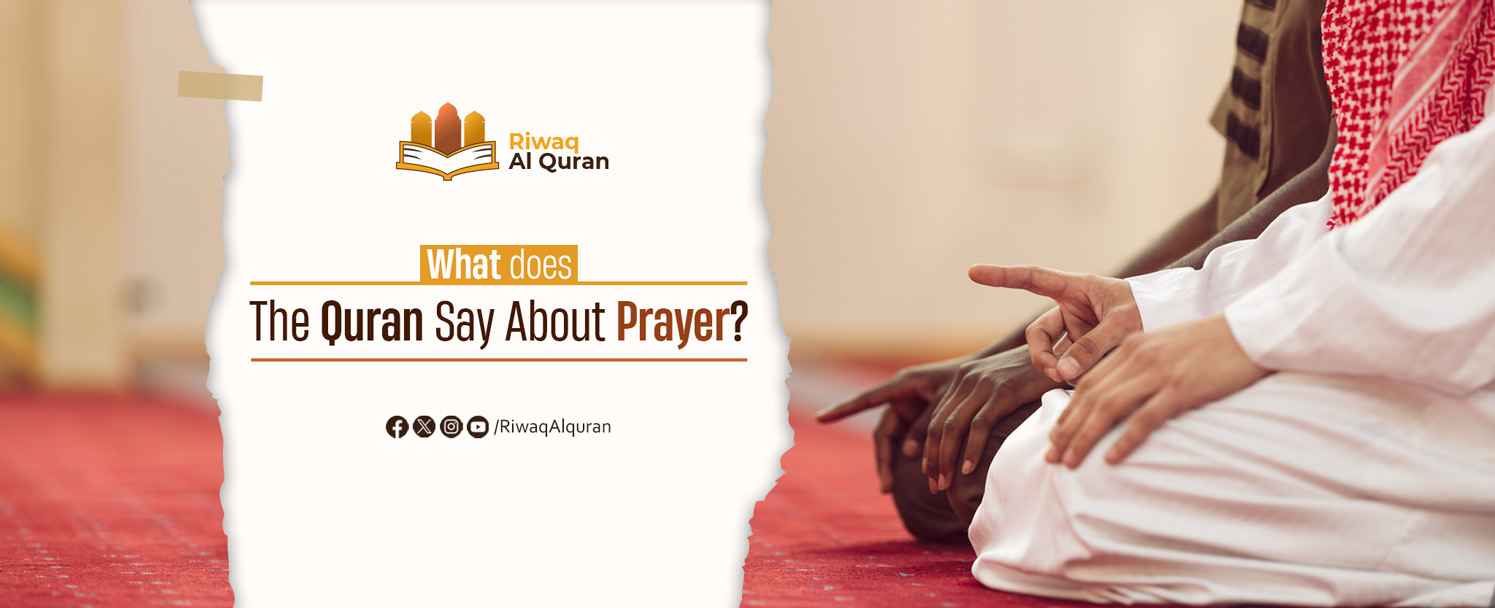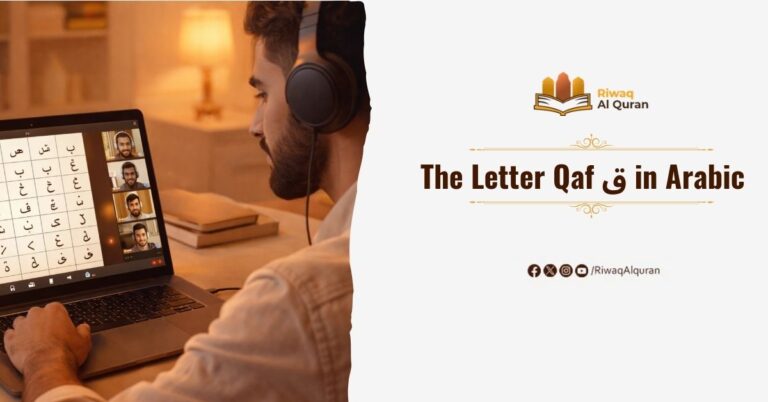Prayer, or Salah, holds a significant position in the life of a Muslim. It is the second pillar of Islam and a direct link between the worshipper and Allah. This article delves into what the Quran says about prayer, how to perform it according to Quranic guidelines, and its immense importance in a believer’s life.
The Quran emphasizes prayer as a fundamental aspect of a Muslim’s faith. It is an obligatory act performed five times daily, serving to remember Allah, seek guidance, and maintain a spiritual connection.
Prayer includes specific physical postures and recitations, must be done at prescribed times, and is encouraged in a congregation, especially on Fridays. It provides spiritual peace, prevents immorality, and fosters community. Let’s check some of these concepts that are mentioned in the Quran about it:
Table of Contents
1. Commandment to Pray
The Quran explicitly commands the observance of Salah, which has to be done 5 times a day. In Surah Al-Baqarah, Allah says:
“Guard strictly (five obligatory) As-Salawat (the prayers) especially the middle Salat (i.e. the ‘Asr prayer). And stand before Allah with obedience” (Quran 2:238).
2. Prescribed Times for Salah
The importance of praying at prescribed times is emphasized in the Quran:
“Verily, the prayer is enjoined on the believers at fixed hours” (Quran 4:103).
This verse underscores the significance of adhering to the specific times for each of the five daily prayers.
3. The Rituals of Prayer
Although the Quran provides the foundational elements of Salah, it doesn’t detail every specific action. However, it highlights key aspects such as cleanliness, Qibla, and recitation of particular verses. For instance:
When you stand to pray, wash your faces and your hands up to the elbows, wipe your heads, and wash your feet up to the ankles” (Quran 5:6).
4. Seeking Help Through Prayer
The Quran encourages believers to seek help and solace through prayer and patience, especially during times of difficulty and distress. This is evident in the verse:
“O you who have believed, seek help through patience and prayer. Indeed, Allah is with the patient” (Quran 2:153).
5. Prayer as a Pillar of Islam
Salah is one of the Five Pillars of Islam, fundamental to the faith and practice of a Muslim. It serves as a primary mode of worship and a means to maintain a connection with Allah. While there isn’t a specific verse in the Quran that directly states “Prayer is a pillar of Islam,” the importance of prayer is emphasized throughout the Quran’s emphasis on the regular observance of Salah.
6. Communal Prayer
The Quran also emphasizes the importance of praying in congregation, particularly for the Friday prayer (Jumu’ah), which fosters a sense of community and collective worship among believers. This is mentioned in:
“O you who have believed, when the call to prayer is proclaimed on Friday, hasten to the remembrance of Allah and leave off trade. That is better for you, if you only knew” (Quran 62:9).
These points illustrate the comprehensive role of prayer in the life of a Muslim, encompassing personal, communal, and spiritual dimensions, while also underscoring its foundational status as a pillar of Islam.


How to Perform Salah According to the Quran?
Now that we have finished what the Quran says about Salah, it is time to learn how to perform Salah according to our Islamic teachings.
1. Intention (Niyyah)
Salah begins with the intention in the heart to perform the prayer sincerely for Allah’s sake. While the Quran does not explicitly mention the niyyah, it is inferred from the context of worship.
2. Purification (Wudu)
Purification is a prerequisite for Salah. The Quran states:
“O you who believe! When you intend to offer As-Salat, wash your faces and your hands up to the elbows, rub (by passing wet hands over) your heads, and (wash) your feet up to the ankles” (Quran 5:6).
3. Facing the Qibla
Muslims are commanded to face the Kaaba in Mecca during prayer:
“Turn your face in the direction of the Sacred Mosque; wherever you may be, turn your faces towards it” (Quran 2:144).
4. Recitation of Quranic Verses
The recitation of Surah Al-Fatiha is essential in every Rakah of the prayer, as inferred from the Quranic emphasis on recitation:
“So recite what is easy from the Quran” (Quran 73:20).
5. Physical Actions
While the Quran outlines the necessity of standing, bowing, and prostration, the exact sequences are derived from the teachings of Prophet Muhammad (PBUH):
“O you who have believed, bow and prostrate and worship your Lord and do good – that you may succeed” (Quran 22:77)
Importance of Salah in Quran
Since prayer holds immense significance for Muslims. Here are seven key importance of Salah:
1. Spiritual Connection with Allah:
Salah provides a direct link between the worshipper and Allah. It’s a moment where Muslims can communicate with their Creator, seek guidance, ask for forgiveness, and express gratitude. This regular engagement fosters a deep spiritual connection and keeps the faith strong.
2. Discipline and Punctuality:
Performing Salah five times a day at prescribed times instills a sense of discipline and time management in a Muslim’s life. It structures the day around moments of worship, encouraging punctuality and regularity in daily routines.
3. Moral and Ethical Development:
Salah serves as a constant reminder of a Muslim’s faith and duties towards Allah and fellow humans. It encourages the practice of virtues such as honesty, patience, and compassion. Regular prayer helps in maintaining moral integrity and ethical behavior in personal and social interactions.
4. Community and Brotherhood:
Congregational prayers, especially the Friday prayer, emphasize the importance of community in Islam. They provide opportunities for social interaction, fostering a sense of brotherhood and unity among Muslims. This collective worship strengthens communal bonds and promotes social cohesion.
5. Mental and Emotional Well-being:
Salah offers a moment of peace and reflection amidst the hustle and bustle of daily life. The act of praying can reduce stress and anxiety, providing a sense of calm and emotional stability. The regular rhythm of Salah helps in managing mental health by fostering a balanced and tranquil state of mind.
6. Physical Benefits:
The physical movements involved in Salah, such as standing, bowing, and prostrating, contribute to physical health. These movements can improve flexibility, circulation, and overall physical fitness. Regular physical activity in prayer acts as a form of mild exercise, promoting physical well-being.
7. Remembrance and Gratitude:
Salah serves as a regular reminder of Allah’s presence and blessings in a Muslim’s life. It encourages constant remembrance and gratitude towards Allah for all His favors. This continual gratitude nurtures a positive outlook on life, fostering a sense of contentment and appreciation.
However, when we offer Salah with sincerity and devotion, seeking only the pleasure of Allah, it becomes a means of spiritual connection and growth. The intention behind Salah should always be to fulfill our duty towards our Creator and to express our gratitude and submission to Him. Worldly benefits may come as a result of sincere prayer, but the primary focus should always be on worshiping Allah with a pure heart.
What Does the Quran Say About Prayer Times?
The Quran provides specific guidance on the timing of the five daily prayers, emphasizing their importance and the need to perform them at designated periods throughout the day. The prayers are strategically placed to ensure that Muslims remain mindful of Allah and maintain a strong spiritual connection. They are:
- Fajr (Dawn Prayer)
- Dhuhr (Noon Prayer)
- Asr (Afternoon Prayer)
- Maghrib (Sunset Prayer)
- Isha (Night Prayer)
These prayers are obligatory and have set times to be observed. One of the key verses that underscores the importance of observing prayer at specific times is:
Quran 4:103: “And when you have completed the prayer, remember Allah standing, sitting, or [lying] on your sides. But when you become secure, re-establish [regular] prayer. Indeed, prayer has been decreed upon the believers a decree of specified times.”
Arabic: “إِنَّ الصَّلَاةَ كَانَتْ عَلَى الْمُؤْمِنِينَ كِتَابًا مَّوْقُوتًا”
This verse highlights that Salah is obligatory for believers at specified times, reinforcing the importance of adhering to the prescribed prayer schedule.
How to Maintain Salah to Be a Good Muslim?
Maintaining Salah as a consistent practice is essential for being a good Muslim; here are some tips to help you stick to the timings of prayer and perform it correctly:
- Make sincere intentions for Salah.
- Learn the correct method of performing Salah.
- Pray on time.
- Understand the meanings of the verses and prayers.
- Avoid rushing through Salah.
- Reflect on your actions and seek forgiveness during Salah.
- Concentrate and minimize distractions.
- Utilize moments of Sujood for sincere supplication.
- Prioritize consistency over perfection.
- Seek community support.
- Continuously learn about Islam and the significance of Salah.
- Strive for excellence in your Salah performance.
- Seek forgiveness and repentance if your Salah is lacking.
- Stay connected to the Quran.
Transform Your Islamic Learning with Riwaq Al Quran and Join Us!
Dive into a rich educational experience with Riwaq Al Quran’s diverse range of courses. Whether it’s mastering Quranic recitation, learning Arabic, or exploring the depths of Islamic studies, our academy is here to support your journey toward spiritual growth and understanding. Join us to enhance your knowledge, practice, and devotion, guided by the teachings of the Quran.


Learn Quran, Arabic And Islamic Studies Online With The Best Native Tutors
Riwaq Al Quran is a comprehensive online platform that offers personalized Quran, Arabic and Islamic Studies Online classes for individuals of all ages and backgrounds.
Their experienced instructors use a structured curriculum to cover Tajweed, Tafsir, and Memorization, providing easy and effective access to learning the Quran.
The advanced online classes allow for seamless communication and interaction between students and teachers. Join Riwaq Al Quran for a deeper connection with the Quran.
We offer several courses such as:
- Online courses for kids.
- Online Quran classes for kids and adults.
- Online Arabic courses
- Online Ijazah courses
- Online Islamic Studies courses.
Here are a sample of our set of Quran Courses that will be helpful for you:
- Online Tafseer Course: Delve into Quranic meanings with our insightful online Tafseer course.
- Noorani Qaida Online: Learn Quranic basics efficiently through our Noorani Qaida online program.
- Online Quran Recitation Course: Enhance Quranic recitation skills through our expert-led online course.
- Online Tajweed Classes: Master Tajweed rules for beautiful Quranic recitation in online classes.
- Quran Memorization Online Course: Memorize the Quran effectively with our specialized online memorization course.
- Online Qirat Course: Explore diverse Qirat styles with our comprehensive online Qirat course.
- Online Quran Classes for Kids: Nurture a love for the Quran in kids through interactive online classes.
Conclusion
This exploration aims to provide a thorough understanding of the significance, practice, and benefits of Salah as highlighted in the Quran. At Riwaq Al Quran, we aim to provide comprehensive guidance on understanding and performing Salah, in adherence to the teachings of the Quran. By sincerely performing Salah, Muslims can achieve spiritual fulfillment and a closer relationship with Allah.


































